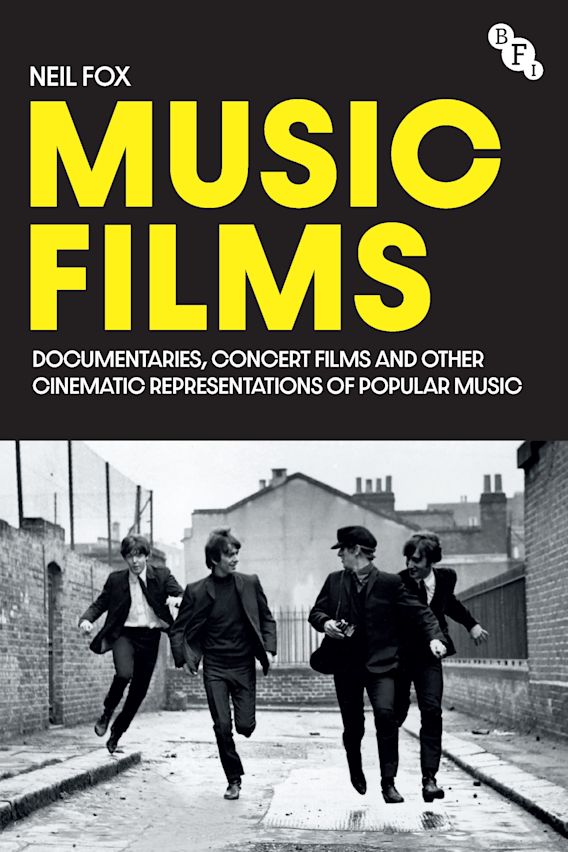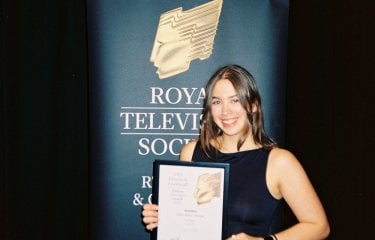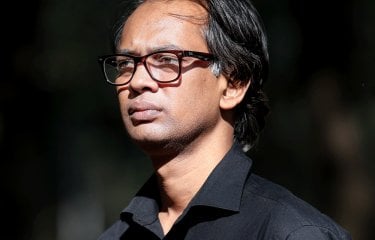Professor Neil Fox publishes his first book, on music films
18 June 2024


Film BA and Film & Television MA lecturer Professor Neil Fox has published his first book, titled Music Films: Documentaries, Concert Films and Other Cinematic Representations of Popular Music.
The book is based on a broad range of music documentaries over the last 70 years, delving into their cinematic style, political undertones, racial dynamics and gender representations. Neil examined 250 films to write the book, from the well-known A Hard Day's Night, Dig! and Amazing Grace, through to the lesser known in Jazz on a Summer's Day and Ornette: Made in America.
Neil structured the book so that films from different eras could be compared alongside each other, giving space for wider discussion and review of the genre.
We asked Neil about the research and writing process behind Music Films.
Having written the book, what in your opinion, makes a perfect music film?
A perfect music film for me is often an imperfect film. It’s one that strives to capture in a cinematic way what makes an artist or an artist’s story special, something that honours the music made by using the medium of film in interesting ways.
To me it doesn’t really matter if it doesn’t necessarily succeed completely (though I’d argue there are many examples where it does, and I love those too).
Also, I like the tension in music films between filmmaker, musician(s) and the corporate benefactor such as a record label or manager. All those competing agendas make for fascinating films, I believe.
Do you see music films differently now?
I wouldn’t say my opinion has changed since writing the book. The book was a way of voicing a lot of feelings I had from years of watching music films. My love of them has deepened, and I hope the book changes other people’s opinions of them, which are often quite low.
You’ve been involved in many films but this is your first book – were there any challenges for you in the change of medium?
I have written about music films for a long time – reviews and interviews – for places like the Quietus, and I’ve written academic articles too. The challenge was taking such a big idea and topic and trying to condense it into something coherent and contained, and also readable but with a level of context and rigour that people would expect in an academic work. I guess I wanted the book to feel like a tension between scholarship and criticism that reflect the creative tensions in the subject, that I mentioned before.
How did you find watching - or rewatching - 250 films for your research?
I wish I’d asked for longer to write the book once I decided I wanted to watch or rewatch everything mentioned in the book, even if it was for just a line or two. Time will tell if this was anything other than folly. The book is a survey, really, across 70 years of cinema. There are a lot of films covered, some in more detail than others.
What were the main things you learned from your research? Is there anything that will influence your teaching on your Film or Television courses?
I learned that like with most areas of cinema history there is a wealth of material on artists and musical movements that has been forgotten, as narratives around canonical white male artists have taken precedence. This was not really a surprise, but it was thrilling to discover films I had never heard of and see how they approached their storytelling. Frustratingly, as with all books I guess, I learned of films that would have been great to cover, such as Horace Ove’s reggae concert film from the early 1970s, after I’d submitted my manuscript.
Independent films are hard to make. Independent films about independent music are really hard to make. I take a lot of examples of how filmmakers managed to get work made, how they used their instincts and guts to do something that no one saw the value in, until the finished article. For example, Christine Franz seeing the power and importance of Sleaford Mods and embarking on documenting their rise before anyone was really paying attention. This is invaluable to the next generation of filmmakers, because the financing and support for making indie work isn’t getting easier; if anything it’s much, much worse.
Do you think you’ll ever make a music film?
Ha! Yes. I’d love to. There are two projects I would like to do and have talked about with filmmakers I love – including some filmmakers whose documentary I am producing through the Sound/Image Cinema Lab – and for artists I love. I’ve also had conversations with another filmmaker whose work is covered in the book about producing their current project through the Lab. I’d love to be able to put my (figurative) money where my mouth is, and put the theories in the book into practice.
About Neil Fox
Neil joined Falmouth University in 2013 and now teaches on the BA Film and MA Film and Television courses, supervises PhD students and leads the Centre for Pedagogy Futures. He is also the research and strategy lead for the Sound/Image Cinema Lab which works closely with Cornish and UK independent filmmakers.
Neil is also the co-host of The Cinematologists podcast which over its 100 episodes has had big name guests such as Peter Bogdanovich and Steve McQueen.
Links




